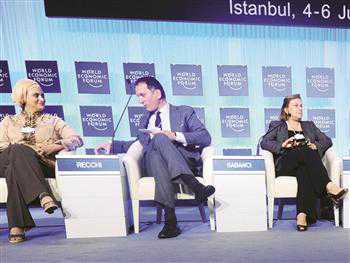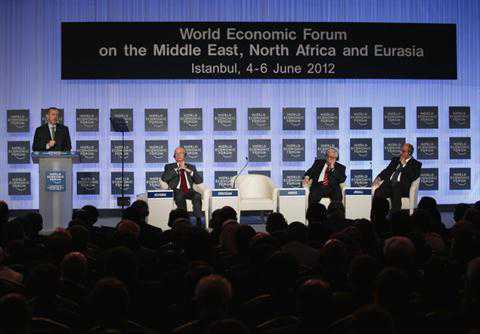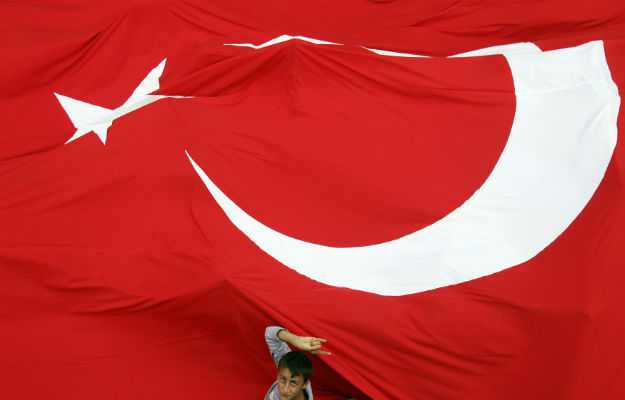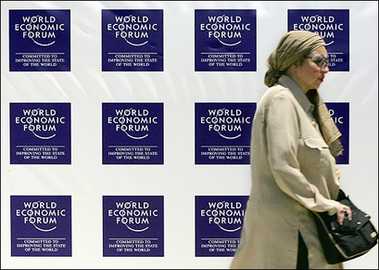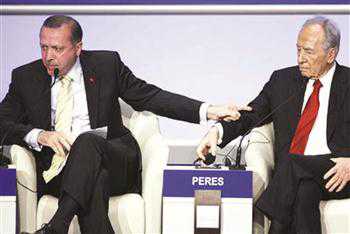Washington’s Celebrity Journalism Hits Istanbul
David Ignatius handles Tayyip Erdoğan with kid gloves.
By Elliott Abrams
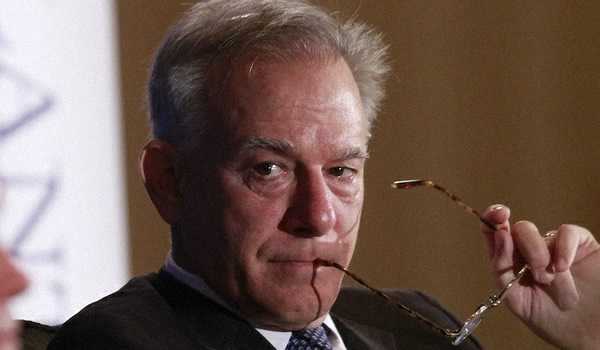
Washington Post columnist David Ignatius
Elliott Abrams
Turkey is a complex country, but there are two key developments there that demand attention.
One is the increasing repression. Today there are more than 100 journalists in prison, more than in China. The European Federation of Journalists has launched a campaign called “Set Turkish Journalists Free.” Human Rights Watch has reported that “a Turkish court’s verdict on January 17, 2012, that there was no state involvement or organized plot behind the 2007 shooting of the Turkish Armenian journalist Hrant Dink is a travesty of justice.” The Committee to Protect Journalists has criticized Prime Minister Tayyip Erdoğan for his crackdown on independent journalism: “Erdoğan sought to link journalists who cover Kurdish separatist issues with the separatists themselves. In comments directed at those journalists, made at a meeting of the ruling AKP, the prime minister said: ‘Do you have ears? Are you deaf? . . . How long will you make common cause with those who endeavor to turn an easeful country into a restless country?’” CPJ’s European coordinator commented that “we are deeply concerned by Prime Minister Erdoğan’s intemperate statements concerning journalists. Coming from his high office, they are equivalent to instructions to his subordinates to crack down on the independent media.”
The second key development is the growing trouble the Turkish economy is in. The Economist commented in April that “the danger now is that a few more years of big current-account deficits, and the debt-creating capital flows that finance them, will leave Turkey less resilient when trouble strikes. Few countries that run big external deficits have avoided subsequent stresses. You don’t need to stand atop the Galata tower to see problems ahead.” Others have used stronger language: “Turkey’s high-flying economy, which expanded at a 10 percent annual rate of gross domestic product growth during the first half of 2011, will crash-land in 2012,” said the financier and commentator David Goldman. He explains: “The impetus behind the country’s recent economic growth has been a stunning rate of credit expansion, which reached 30 percent for households and 40 percent for business in 2011.” Where does the money go? Turkey “is running a current account deficit equal to 11 percent of GDP to promote a consumer buying spree while cutting imports of capital goods that would contribute to future productivity.” Goldman notes that “in some respects, Erdoğan’s bubble recalls the experiences of Argentina in 2000 and Mexico in 1994 where surging external debt produced short-lived bubbles of prosperity, followed by currency devaluations and deep slumps.”
In The National Interest, former U.S. ambassador to Turkey Morton Abramowitz wrote his own analysis of the dangerous situation there: Erdoğan’s “leadership and judgment are being seriously questioned, most recently in regards to whether his ambition is getting in the way of managing critical issues such as Turkey’s unending Kurdish dilemma. Indeed, one prominent AKP supporter last week wrote that ‘The once reformist party of Turkey seems to have developed statist, nationalist, and even Islamist tendencies, which are the likely grounds for a new authoritarian politics. . . . ’ Erdogan’s highly touted Middle East involvement has lost some luster. . . . The much-touted vast Turkish influence in the Middle East seems to have faded. . . . Increasingly, Erdogan’s focus seems to be on creating a presidential system in the new constitution that will allow him to make a Putin-esque move to a more powerful presidency.”
via Washington’s Celebrity Journalism Hits Istanbul – Elliott Abrams – National Review Online.

